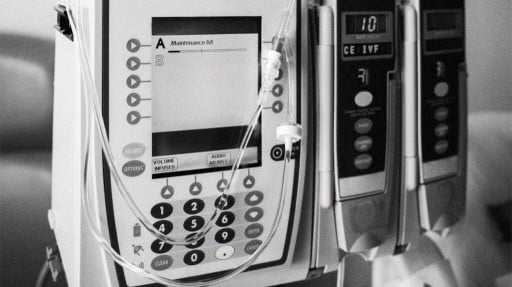
- As GLP-1 medications increase in popularity, researchers continue to examine potential side effects.
- The FDA is investigating reports of side effects from GLP-1 receptor agonists, including suicidal ideation and hair loss.
- A large new study found no link between semaglutide, the active ingredient in GLP-1 drugs like Ozempic and Wegovy, and suicidal ideation.
GLP-1 drugs, such as semaglutide, liraglutide, and tirzepatide, are type 2 diabetes medications that have become popular over the last year for weight loss.
It’s estimated around 24 million people in the United States, or 7% of the population, will take GLP-1 medications by 2035.
Wegovy, Saxenda, and Zepbound are currently the GLP-1 medications that are FDA-approved as weight loss drugs. Ozempic, Mounjaro, and others may be prescribed off-label to help with weight loss.
As demand for these medications increases, researchers and health experts are looking closely at the potential side effects of GLP-1 receptor agonists.
The Food and Drug Administration (FDA) is investigating
But
Still, previous research has shown that potential side effects of GLP-1 medications include
Despite the possible side effects, GLP-1 drugs are considered safe. Medical News Today spoke with three obesity experts to learn more.
Can GLP-1 drugs cause suicidal thoughts?
The FDA investigation is not the first time an association between suicidal ideation and GLP-1 medications has been reviewed.
The European Medicines Agency (EMA) began investigating this potential side effect in July 2023.
However, a
The researchers examined the medical record data of more than 1.8 million patients and found that semaglutide is associated with a
The researchers followed patients for 6 months after they were prescribed the medications and found those who took semaglutide for weight loss had a 0.1% risk of first-time suicidal ideation. The risk of recurrent suicidal ideation increased to 7% among subjects with a prior history of self-harming behavior.
However, not all GLP-1 drugs contain semaglutide, such as Mounjaro and Zepound, which means the possibility of suicidal thoughts as a side effect may require further evaluation, particularly among those with a history of mental health conditions.
GLP-1 drugs may cause hair loss
The FDA is also investigating hair loss, medically known as
“I’m not surprised because any kind of significant weight loss, whether it’s on medications or patient dieting on their own or even surgery, patients do experience hair loss,” Dr. Ali explained. “It’s typically in women and it’s typically because of the hormonal changes that accompany weight loss, and not necessarily a direct effect of the medication.”
Dr. Lydia C. Alexander, chief medical officer for Enara Health and president-elect of the Obesity Medicine Association, agreed and said that the most common causes of hair loss during obesity treatment are rapid weight loss and trace mineral and vitamin deficiency.
“In some studies, up to
“The most common vitamin and mineral
“Since GLP-1 medications cause greater and more rapid weight loss as do restrictive very low calorie diets, it is not surprising to hear of case reports and increased incidence of hair loss. In our experience, hair regrows three to six months following weight stabilization, with nutrient replacement and dietary monitoring/nutritional counseling.”
— Dr. Lydia C. Alexander, obesity expert
Can GLP-1 drugs cause difficulty swallowing?
Aspiration occurs when liquid, food, or something else accidentally enters a person’s airway and makes its way to the lungs. This can happen either when a person swallows something — known colloquially as “going down the wrong way” — or food or liquid coming back up from the stomach.
Dr. Ali said that aspiration as a side effect of GLP-1 medications makes sense because one of the effects of these medications is it slows down the emptying of the stomach.
“In some patients that are more sensitive, instead of the stomach emptying as normal it’s staying full for a longer period of time,” he explained. “So if they are sleeping on a full stomach, some of the contents may go off and they can aspirate.”
“There is a warning for patients who are to undergo surgery to stop these medications at least a week before surgery to give your stomach a chance to kind of revert to normal,” Dr. Ali added. “It’s important not to eat too soon before going to bed or especially if you’re going to have surgery to hold medications before surgery.”
“If you overeat and ignore the effect of the medication it will cause nausea, vomiting, and possibly aspiration,” Dr. Kipnis added. “People need to follow appropriate diets and food quantity guidelines for these drugs to work.”
Will the FDA make changes to GLP-1 labels?
MNT asked an FDA spokesperson what prompted the agency to investigate the potential side effects of GLP-1 drugs and whether there were any plans for specific recommendations or further research into causal effects that couldmerits labeling changes.
The spokesperson told MNT the FDA monitors the safety of drugs throughout their life cycle, including post-approval.
“In addition, the FDA maintains a system of postmarketing surveillance and risk assessment programs to identify and evaluate adverse events that did not appear during the drug development process. If newly identified safety signals are identified, the FDA will determine what, if any, actions are appropriate after a thorough review of available data,” the FDA spokesperson said.
Dr. Alexander said the FDA’s current evaluation of these potential side effects is the correct avenue to aggregate, report, and further investigate medication-related side effects to understand if there are additional minor to serious side effects that may not have been seen or identified as significant during clinical trials.
“It is the job of the FDA to evaluate all drugs for potential signals of serious risk and, if found to be significant, update and release new safety information to prescribers and the public on the identified medication,” Dr. Alexander noted.
When asked what needs to be done to establish a direct link between taking GLP-1 drugs and side effects like hair loss, suicidal ideation, or aspiration, Dr. Kipnis said that more studies are needed to know what happens when someone stops taking these medications.
“Short-term, these drugs cause significant weight loss with minimal side effects, [but] what are the long-term side effects?” Dr. Kipnis questioned. “How long can someone stay on these drugs? “Obesity is a long-term problem. Are these drugs just a short-term solution?”
Preventing GLP-1 side effects
For those who may be taking or considering a GLP-1 receptor agonist, all experts agree it is important to go through a physician who will continuously monitor them and keep them updated on any side effects they may experience.
“It’s important to thoroughly discuss side effects with your medical provider,” Dr. Alexander said.
“Physicians board certified in obesity medicine and advanced practitioners holding the NP/PA certificate of obesity medicine are well-equipped to discuss the risks and benefits of GLP-1 medications, monitor, and identify potentially serious medication side effects related to your specific health profile.”
“These new drugs should be prescribed by a doctor with an in-person visit that includes a physical exam and weight being taken,” Dr. Kipnis said.
“Patients should also be seeing a registered dietitian while taking these medications. Routine follow-up with the prescribing doctor should be required to avoid complications and to monitor for patient compliance.”
“Patients taking these medications should meet the current FDA guidelines. Many of these are not being done across the country. These drugs are being used for cosmetic reasons for non-obese patients, exclusively prescribed through telemedicine, or being prescribed by providers who have never managed obesity before and may not be qualified to be prescribing them.”
— Dr. Seth Kipnis, bariatric sugeon







